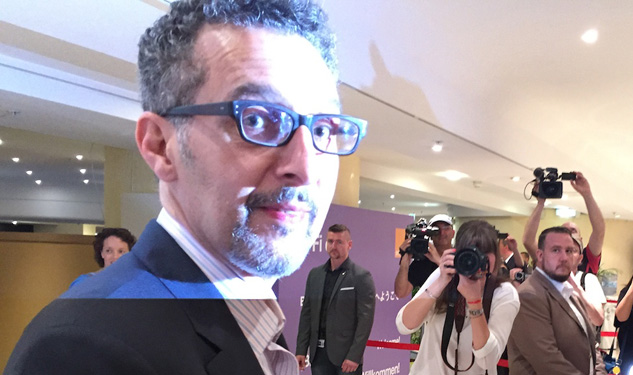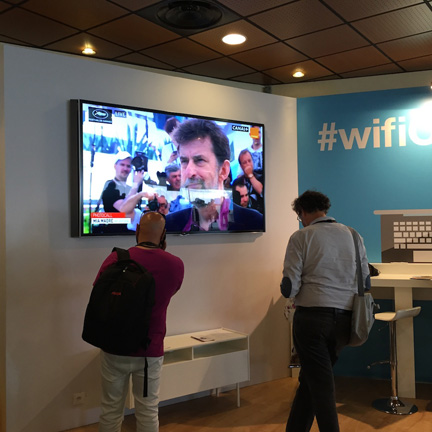
- Industry
Moretti Impresses In Cannes
One of the loudest and longest applause heard in Cannes so far was surely the one that followed the early morning press screening of Mia Madre at the packed Salle Lumière. Sustained and well deserved, it was an appreciation of Italian director Nanni Moretti’s latest film, which many consider to be his best yet and which has garnered some of the loudest buzz of this 68th edition. A two-time Cannes winner (Best Director in 1994 with Caro Diario and Palme d’Or in 2006 with La Stanza del Figlio) Moretti has crafted an intimate, moving and funny story of a middle aged director Margherita (Margherita Buy) and her brother (Moretti) facing the death of their mother and the intimations of their own mortality. Moretti’s s films are often semi-autobiographical narratives of angst and self-doubt and, for a time in his career, his characters were considered by Italian critics as homegrown versions of Woody Allen’s screen personas (coincidentally Allen preceded him by one day at the Palais this year with the screening of his Irrational Man).
He habitually casts himself in the title roles but even as he plays a crucial supporting character, in Mia Madre he has opted to cast frequent collaborator Margherita Buy in what is effectively a female alter-ego: A film director that is trying to finish a political film about a factory strike as her mother’s illness confronts her with feelings of grief and guilt. All of Moretti’s customary themes are at work here, midlife crises, fear of inadequacy and labored self-realization, but in Mia Madre he strikes an unusual balance between sorrow, introspection and outright comedy. That department falls mainly to John Turturro who plays the American actor hired as the lead in Margherita’s film- within-a-film.
Loud, obstreperous and not particularly talented, Turturro’s character supplies a shot of energy to Moretti’s often anemic and minimalist proceedings and serves to offset, and by contrast highlight, the film’s intimate and emotional moments.
A notoriously cinephile director, Moretti here references Truffaut’s Day For Night and Fellini’s 8 ½. A press conference in which Buy’s director is overcome by self-doubt while confronted with a firing line of reporters’ inane queries is an almost line-by-line homage to Fellini’s similar scene with Marcello Mastroianni. The overlay of film reality and dreams are also throwbacks to the Italian master’s oneiric style. But this is very much a film by a director at ease with self-irony and in command of his palette.
Moretti has been to the festival seven times, has been a member of the jury and chaired that august body in 2006, which tells you to what degree he is appreciated here. Over the years his films have, in fact, been more successful in France than in most countries, including his native Italy. Mia Madre will likely continue that trend and has the potential for adding real international success.
Luca Celada 
Journalists follow Nanni Moretti’s arrival in the press room

